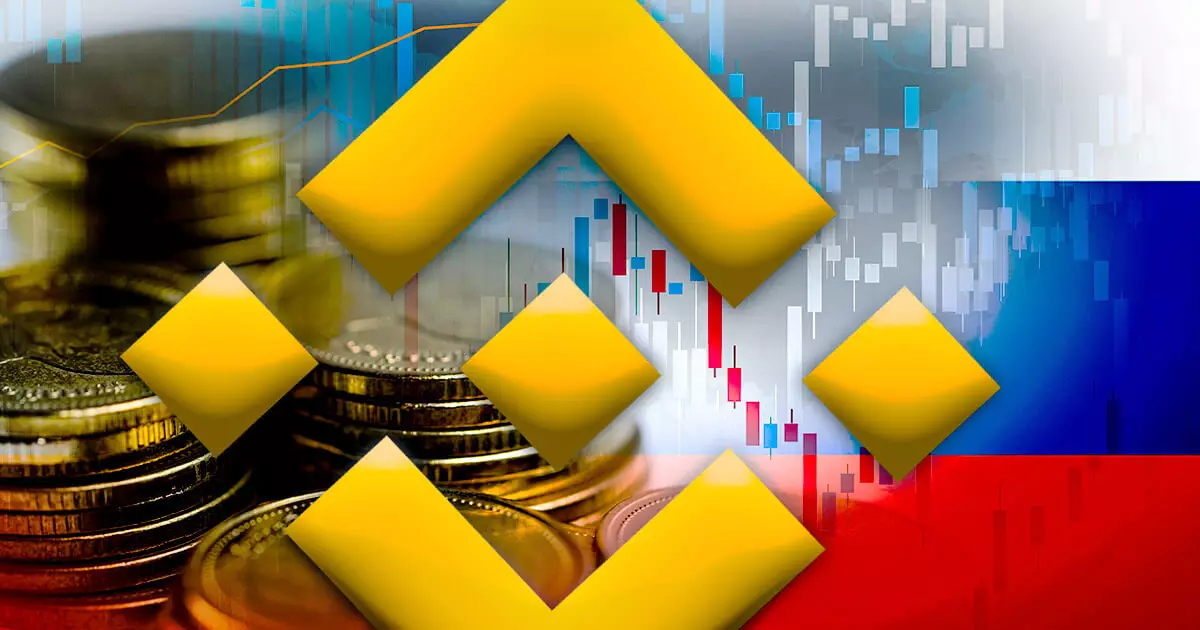Binance, one of the largest cryptocurrency exchanges in the world, has reportedly renamed sanctioned Russian banks on its peer-to-peer (P2P) platform to allow them to continue operations. According to local media RBC-Crypto, Binance changed the bank cards for Sber and Tinkoff to “green” and “yellow” local cards on its payment options for P2P trading. This move enables Binance users to trade and process payments via banks, despite the strict Western sanctions imposed on Russia’s financial system. The role of Binance in facilitating transactions for sanctioned banks raises concerns about its compliance with global sanctions and its relationship with these banks.
Binance has denied any direct relationship with the sanctioned Russian banks and claims that it complies with global sanctions. However, this contradicts the recent report by the Wall Street Journal, which revealed that Binance has continued to enable several sanctioned Russian banks, including Sber and Tinkoff, to conduct transactions on its platform. The discrepancy in Binance’s statements and the evidence presented by the Wall Street Journal raises doubts about the exchange’s transparency and its adherence to international regulations.
The revelation about Binance’s involvement with sanctioned Russian banks could further complicate the regulatory challenges the exchange is already facing in several Western countries. Binance has been under scrutiny by regulators for potential violations of anti-money laundering laws. The recent report adds fuel to the fire and could provide additional ammunition for the U.S. Department of Justice, which is reportedly investigating both Binance and its CEO, Changpeng Zhao. The investigation could have significant repercussions for Binance’s reputation and its ability to operate globally.
In a separate development, a Russian blockchain company called Web3Tech has launched a platform that enables international payments through cryptocurrencies. This platform aims to reduce Russia’s financial system’s dependence on SWIFT (Society for Worldwide Interbank Financial Telecommunication) by processing local and international payments using cryptocurrencies. The advent of this platform is a response to the heavy pressure faced by Russia’s financial system since its invasion of Ukraine last year. As a result, the Russian government has increasingly turned to cryptocurrencies and central bank digital currencies (CBDCs) for international transactions.
Web3Tech’s platform offers several features that make it an attractive alternative to traditional banking systems. The platform can work with other public blockchains, facilitating the circulation of popular cryptocurrencies such as Tether’s USDT and USD Coin. Moreover, it creates smart contracts and bridges, which enable seamless and secure transfer of funds. By providing an alternative to SWIFT and traditional banking systems, Web3Tech’s platform could potentially disrupt the financial landscape in Russia and contribute to the broader adoption of cryptocurrencies and blockchain technology.
Binance’s decision to rename sanctioned Russian banks on its P2P platform raises concerns about its compliance with global sanctions and its relationship with these banks. The potential repercussions of these actions could further complicate Binance’s regulatory challenges and impact its reputation. Meanwhile, the launch of Web3Tech’s platform offers a promising solution to Russia’s financial system’s dependence on SWIFT and traditional banks by leveraging cryptocurrencies and blockchain technology. As the financial landscape continues to evolve, it is vital for both businesses and regulators to adapt and embrace the potential of these emerging technologies.


Leave a Reply